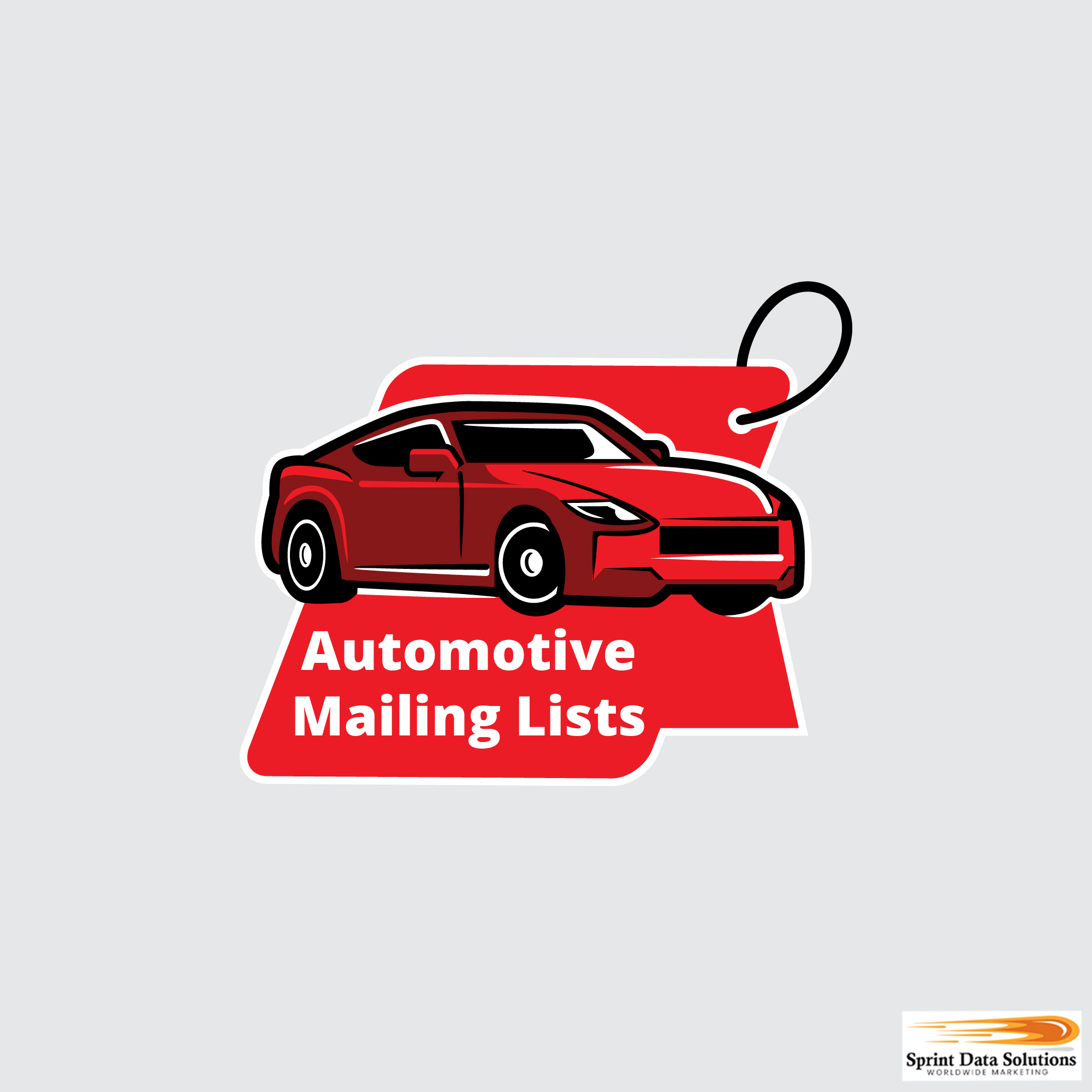The American Car Market Is Huge
If you are a business owner in the USA, Canada, or virtually any country around the world, understanding the American automotive culture is crucial to success. Unlike many older nations, the United States developed much of its infrastructure during a time when automobiles were becoming widespread in the 20th century. This unique historical timing allowed for the creation of sprawling cities, extensive highways, and suburban areas specifically designed to accommodate personal vehicles. Consequently, car ownership became deeply ingrained in both the personal and professional lives of Americans.
Today, the United States boasts one of the largest and most passionate car-owning populations in the world, creating abundant opportunities for businesses that offer products and services tailored to drivers. Whether it’s automotive accessories, maintenance services, financing solutions, or lifestyle products connected to vehicle use, the market potential is enormous. However, effectively reaching the right audience can be complex. That’s where Sprint Data Solutions Worldwide Marketing excels. We provide comprehensive, precisely targeted databases that help businesses align their offerings with the right segments of the car-owning public, ensuring marketing campaigns achieve maximum reach and relevance.

Automotive Mailing List
The most comprehensive and expansive list available is undoubtedly the automotive mailing list. Often referred to as the “master list” of automotive-related databases, it encompasses virtually every category within the automotive sector. This includes individuals interested in new and used vehicles, enthusiasts seeking aftermarket parts and accessories, and consumers engaged in a broad spectrum of automotive services. Whether the focus is on purchasing vehicles, maintaining them, or enhancing them with specialized products, this list captures a vast and diverse audience. It is an ideal resource for businesses aiming to reach the widest possible demographic with any automotive-related offering. From service providers offering oil changes and repairs to companies selling cleaning supplies, insurance, or car-care accessories, the opportunities are abundant. Essentially, this list represents the automotive industry’s broadest base, allowing businesses to engage with customers across multiple interests and needs, making it an invaluable asset for comprehensive marketing campaigns.
Automotive VIN Number Mailing List
The Vehicle Identification Number (VIN) is a distinct, 17-character serial code assigned to every vehicle at the time of manufacture. This number serves as a permanent identifier, remaining tied to the vehicle throughout its lifespan, regardless of ownership changes. Because of its unique nature, a VIN allows for the efficient tracking of a specific car’s history, including ownership records, accident reports, and maintenance activities. However, beyond its traditional uses in regulation and tracking, VINs also offer significant opportunities for targeted marketing campaigns.
By utilizing a VIN-based mailing list, businesses can tailor their offers to vehicle owners with exceptional precision. For example, marketers can segment audiences based on the age of the car, suggesting maintenance packages, extended warranties, or trade-in offers as vehicles approach certain milestones. Similarly, campaigns can be refined by make, model, trim level, or even geographic location, allowing advertisers to promote accessories, replacement parts, or upgrade incentives that are highly relevant to the recipient’s vehicle type. Furthermore, integrating VIN data with other consumer databases enhances the ability to personalize outreach, ensuring that messages are not just targeted but also timely and value-driven. Overall, VIN databases provide a powerful tool for companies seeking to increase customer engagement and conversion rates by delivering the right message to the right vehicle owner at the right time.
Automotive Parts Buyers
While automobiles are designed to operate reliably over extended periods, they inevitably experience wear and tear, or suffer damage from unforeseen accidents. Rather than purchasing an entirely new vehicle, the most practical and cost-effective solution is often to replace only the components that are damaged or degraded. This repair process can be undertaken by professional auto repair facilities equipped with specialized knowledge and tools, but it is also accessible to individuals who have invested time in learning the fundamentals of automotive maintenance and mechanics. With the right resources and skills, DIY repairs can save significant costs and foster a deeper understanding of vehicle operation.
The market for car parts buyers represents a distinct and highly specialized demographic. These consumers not only drive demand for replacement parts but also fuel a broader ecosystem of associated goods and services. Beyond the core automotive components, there is a thriving market for specialized tools necessary for installation and repair, products designed for cleaning, restoration supplies, and even educational resources for aspiring mechanics. Although this market is more niche compared to general automotive retail, it can be highly lucrative when approached with tailored marketing strategies that resonate with the technical interests and practical needs of this audience. Understanding their purchasing behaviors and ancillary requirements is key to successfully tapping into this profitable segment.
Automotive High-Performance Vehicle Mailing List
High-performance vehicles naturally attract a very distinct and valuable demographic. Individuals interested in or owning such vehicles typically possess a heightened knowledge of automobiles, indicating not just a passion but an informed appreciation of automotive technology, engineering, and performance. This deeper engagement often translates into a greater openness and receptivity toward specialized automotive products and services, such as luxury accessories, performance parts, premium maintenance services, and bespoke vehicle modifications. Furthermore, ownership of high-performance cars demands a significant financial commitment — from the initial purchase price to the ongoing costs of maintenance, insurance, and upgrades. As a result, owners of high-performance vehicles are reliably situated within higher income brackets or affluent economic tiers. This makes them an ideal audience not only for automotive-related marketing but also for luxury lifestyle products, premium financial services, wealth management solutions, investment opportunities, and even philanthropic outreach. Their demonstrated purchasing power, combined with a tendency toward aspirational and status-driven acquisitions, positions them as prime candidates for cross-promotional efforts spanning multiple high-value sectors.
Automotive Insurance Data
In the United States, the majority of states mandate that drivers obtain auto insurance before legally operating their vehicles on public roads. Auto insurance, much like Vehicle Identification Number (VIN) data, serves as a critical tool for tracking vehicle ownership. However, insurance goes a step further by offering deeper insights not just into the car itself—such as its usage history, maintenance records, and accident involvement—but also into the behavior and profile of the driver. This information can be invaluable for businesses and service providers seeking to understand and reach specific customer segments.
Insurance premiums are determined by a range of factors, including the vehicle’s make, model, and age, the primary use of the car (personal or commercial), the driver’s accident history, credit score, and even geographic location. Younger cars with higher safety ratings and drivers with clean records often benefit from lower rates, while those with older vehicles or a history of frequent claims can expect higher costs. This variability in insurance data presents important opportunities for marketers and businesses. For example, companies might target safer drivers for premium financial products or extended warranties, while accident-prone drivers could be ideal candidates for safety-focused vehicle features or specialized insurance packages that cater to higher-risk profiles.
Automotive Lease Data
Cars are typically significant financial investments; even older, high-mileage vehicles can often command prices in the hundreds or even thousands of dollars. As a result, owning a car outright may be financially out of reach for some individuals, despite the necessity of reliable transportation for work, school, and other daily responsibilities. Leasing a car presents an alternative to purchasing, providing access to newer vehicles at a lower initial cost. However, leasing agreements usually require applicants to meet specific credit score thresholds to qualify, as lenders use credit ratings to assess financial risk and ensure lease payments will be made consistently.
Individuals within this demographic typically exhibit a heightened interest in targeted products and services, particularly those that offer improved financial planning, debt reduction strategies, and budget-friendly solutions designed to maximize the value of every dollar spent. Understanding their financial behaviors opens opportunities to introduce tools such as personal finance apps, credit counseling services, and flexible payment plans. Furthermore, people who lease vehicles often have distinct lifestyle patterns and spending habits, characterized by a preference for manageable monthly expenses and a desire for convenience and status. With deeper insight into their economic standing, marketers can craft highly personalized campaigns that align with their values and practical needs, leading to greater engagement and customer loyalty.
Automotive Year, Make & Model
People choose different types of vehicles based on a wide range of personal needs, lifestyles, and financial considerations. For instance, an individual purchasing a heavy-duty truck with substantial trailer capacity is likely prioritizing utility, work-related needs, or recreational hauling, while someone opting for a high-end, two-seat sports car is probably motivated by performance, prestige, and personal enjoyment. This distinction highlights why having access to comprehensive databases that track a vehicle’s make, model, and year can be incredibly valuable for big data analytics and consumer profiling. Such data offers critical insights into the owner’s socioeconomic status, lifestyle choices, and even spending habits. For example, an individual who retains the same vehicle for over a decade may belong to a demographic characterized by frugality, practicality, or brand loyalty, whereas someone who upgrades to a new luxury vehicle annually may signal high disposable income and a preference for the latest trends. Without vehicle-specific datasets, these nuances would be difficult to discern. By understanding what cars people own and how long they keep them, businesses can more accurately tailor marketing strategies, craft targeted promotions, and predict consumer behavior with far greater precision.
Automotive Warranty Data
Warranties provide a rich source of inferential data that can reveal significant insights about a vehicle owner’s situation and potential needs. By analyzing warranty status, marketers can deduce not only the approximate age of a car but also the likelihood of impending maintenance costs, changes in insurance needs, or purchasing behavior shifts. Vehicles nearing the end of their warranty period often signal owners who are becoming more conscious about proactive maintenance, repair investments, and even vehicle replacement options. Understanding where a vehicle falls within its warranty lifecycle enables more precise targeting of products and services geared toward extending vehicle longevity, such as extended warranties, specialized tune-ups, advanced diagnostics, and high-mileage maintenance packages. Additionally, it creates an opportunity to build brand loyalty by offering timely solutions before mechanical issues arise. Being able to anticipate and address these evolving needs based on warranty timelines makes marketing efforts far more strategic and customer-focused.
Automotive Accessory Buyers
Accessories play a crucial role not only in enhancing the functionality or aesthetics of a vehicle but also in providing deeper insights into the personality and preferences of the car owner. Some accessories are largely utilitarian—such as snow brushes and ice scrapers, which are popular among car owners living in the colder, northern regions of the United States. These practical additions suggest a focus on seasonal preparedness and responsible vehicle maintenance. However, there are also accessories that convey far more personal and nuanced details about a driver’s lifestyle, hobbies, and values.
Automotive Hybrid Data
Fossil fuels are a finite resource, destined to become scarcer and more expensive over time. Petroleum, in particular, is highly sensitive to external influences, with prices often swinging dramatically in response to geopolitical events, such as the Russian invasion of Ukraine, or policy decisions by major entities like OPEC. These frequent fluctuations make fuel costs unpredictable for consumers. One practical solution to mitigate these uncertainties is the adoption of hybrid vehicles. While fully electric vehicles (EVs) are growing in popularity, they are not yet a viable option for everyone due to factors such as limited driving range, higher upfront costs, and the still-developing infrastructure of charging stations. In contrast, hybrid vehicles—which seamlessly combine gasoline and electric power—offer greater flexibility and are more compatible with a broader range of driving habits. Owners of hybrids tend to follow consistent, predictable patterns in their vehicle usage, making them a valuable and clearly definable demographic. Access to accurate and detailed hybrid driver data enables businesses to effectively identify and target this segment with products and services tailored to their specific needs and preferences.
A Network Of Databases
Sprint Data Solutions Worldwide Marketing maintains an extensive set of proprietary database resources, developed through years of dedicated industry experience. However, the company’s capabilities extend well beyond its own data. Recognizing that different organizations often curate specialized databases tailored to unique criteria and market segments, Sprint Data Solutions Worldwide Marketing has strategically partnered with a variety of trusted third-party organizations. These collaborations allow access to a broader, more diverse array of databases, greatly enhancing the range and precision of solutions offered to clients. In the automotive sector, for example, Sprint Data Solutions Worldwide Marketing leverages partnerships with leading automotive data groups, ensuring that clients benefit from accurate, up-to-date, and highly targeted information sources. This expanded access enables businesses to better reach their intended audiences, whether by vehicle ownership, purchase behavior, or service history, delivering comprehensive marketing solutions that drive real results.

CARS
CARS, which stands for Compliant Auto Resource Solutions, is a comprehensive and highly specialized database encompassing information on over 160 million individuals with registered vehicles. It offers an extensive range of contact points, including full names, residential addresses, complete Vehicle Identification Numbers (VINs), and a rich set of demographic details. This breadth of information allows for precise segmentation, filtering, and categorization based on a wide variety of criteria such as vehicle type, model year, geographic region, income levels, and ownership history. Designed with compliance and data integrity at its core, CARS empowers organizations to target automotive audiences with unmatched accuracy, making it an essential resource for marketing, customer engagement, and industry-specific research initiatives.
Black Book Data
Comprehensive data about car owners is critical for targeted marketing, but equally important is the information available about the vehicles themselves. Black Book Data serves as a premier resource tailored for car dealerships, auto repair businesses, insurance companies, and market analysts. This specialized database offers an extensive range of automotive intelligence, including historical pricing data for models as far back as 1981. It also provides detailed information on Vehicle Identification Numbers (VINs), regional market variations, mileage records, vehicle condition, and parts availability. Furthermore, Black Book Data includes niche metrics such as identifying “cars of particular interest,” specifically highlighting luxury vehicles, specialty trucks, motorcycles, and other unique segments. With its depth of analytics and up-to-date insights, Black Book empowers businesses to make data-driven decisions, optimize inventory management, forecast market trends, and fine-tune marketing strategies for maximum impact.
Auto VINdication
The Vehicle Identification Number (VIN) is a unique 17-character code assigned to every vehicle manufactured and sold, serving as a vehicle’s DNA or fingerprint. This alphanumeric sequence is specific to each individual automobile, ensuring that no two vehicles share the same identifier. The AutoVINdication (AVD) database is a specialized system focused exclusively on tracking VIN data related to vehicle ownership history. Whenever a vehicle undergoes a title change—indicating a shift in ownership—this transaction is promptly recorded and updated within the AVD system. This meticulous record-keeping ensures a highly accurate and reliable database, which is invaluable for businesses and marketers aiming to tailor offers and communications to current vehicle owners. By leveraging the AVD database, companies can deliver highly relevant, vehicle-specific marketing campaigns, increasing engagement and maximizing the return on investment for used vehicle promotions.
Kelley Blue Book Data
The Kelley Blue Book has an extraordinary legacy as one of the most trusted pricing resources in the automotive world for nearly a century. Founded in 1918 as a car dealership specializing in Ford Model Ts in Los Angeles, California, the company quickly evolved. By 1926, Kelley began meticulously documenting the values of used cars to better assist customers and dealers alike. This initiative eventually transformed into the Kelley Blue Book, a reference guide that became essential not just for consumers but also for dealerships, insurance companies, and financial institutions. They pioneered the use of mileage, vehicle condition, and optional equipment as critical factors in value assessment, setting new industry standards. Over time, Kelley Blue Book expanded beyond cars to include motorcycles, boats, and even recreational vehicles, adapting to the growing market needs. Today, headquartered in Irvine, California, the brand continues to thrive globally, establishing a significant presence in countries like China. With a robust online platform and integration into major automotive buying and selling ecosystems, Kelley Blue Book remains an indispensable tool for determining fair market values and guiding millions of transactions each year.

How Sprint Data Solutions Worldwide Marketing Can Help
Sprint Data Solutions Worldwide Marketing has amassed an extensive and carefully curated database of contact information by adhering to the highest standards of ethical and legal data collection practices. Contacts are sourced through explicit opt-in initiatives such as account registrations, newsletter and subscription sign-ups, voluntary survey participation, and the collection of business cards offered at events and conferences. Beyond its proprietary efforts, Sprint Data Solutions also partners with reputable third-party database providers across a wide range of industries and sectors, dramatically expanding the breadth and diversity of its reach. This multi-channel strategy ensures that clients have access to some of the most comprehensive and trustworthy data available for their marketing initiatives.
One of the major pillars of these databases is geographic precision. If a marketing campaign aims to reach a broad audience, contact details can be accessed at the national level, allowing for sweeping coverage across an entire country. However, the scalability of these databases enables much more targeted approaches. Campaigns can be narrowed to specific regions, such as focusing solely on the Deep South. This regional targeting can be refined even further to a single state, like Florida, and subsequently to particular cities or individual neighborhoods. For instance, a campaign could specifically target automobile owners living in the Coral Way neighborhood of Miami, maximizing local relevance and engagement.
Contact Formats & More
Databases provide contact details in the contact formats that clients require. For direct mail marketing, physical mailing addresses for general consumers and business addresses for B2B marketing needs are available. The same applies to email addresses, with individual and corporate contacts available. However, for B2B purposes, corporate email addresses are usually the relevant decision-maker, as opposed to a company’s general contact email, which is less efficient. Marketing strategies that emphasize direct interactions receive telephone numbers. These can be provided as residential numbers, but again, for B2B needs, it will be the relevant decision maker, not just a general receptionist number. Cellular phone numbers are also available for marketing plans focused on text/SMS promotional strategies.
Sprint Data Solutions Worldwide Marketing provides a comprehensive suite of services designed to address the varied and evolving needs of its clientele. A standout among these offerings is the full-service turnkey direct mail solution, specifically developed for businesses that recognize the power of direct mail marketing but may lack the in-house expertise, time, or logistical capacity to manage such campaigns independently. This end-to-end solution expertly guides clients through every critical phase of the direct mail process—from the initial strategy consultation and creative concept development to professional graphic design, precise mailing list targeting, high-quality printing, and secure, timely distribution. By centralizing all components under a single, trusted provider, Sprint Data Solutions not only simplifies project management but also ensures consistency, cost-effectiveness, and optimal campaign performance. Clients benefit from dedicated project managers, rigorous quality controls at each production stage, and industry best practices that maximize response rates and ROI, enabling them to deploy highly effective direct mail initiatives with greater confidence, speed, and measurable success.
If you have a product or service aimed at America’s auto owners, Sprint Data Solutions Worldwide Marketing is your strategic partner for success. We provide access to highly targeted and verified automotive owner databases, helping you connect directly with the consumers most likely to respond to your offer. Whether you’re promoting aftermarket parts, insurance, financial services, or new automotive technologies, our comprehensive marketing solutions ensure that your message reaches the right audience. Contact Sprint Data Solutions Worldwide Marketing today to leverage auto owner leads that drive real results.






